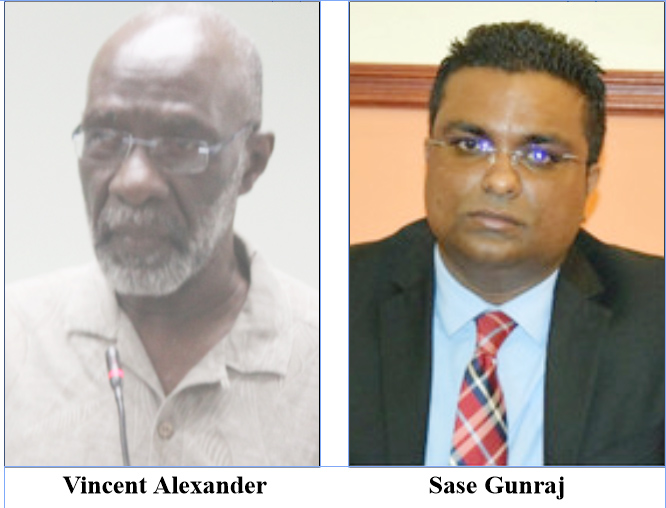The Guyana Elections Commission (GECOM) should be ready to declare a prospective election date today, according to government-nominated commissioner Vincent Alexander.
“We made a decision to make a decision tomorrow on our final work programme for elections,” Alexander joked with reporters yesterday following another four-hour meeting of the commission.
He later elaborated that the commission is “hoping” to be able to finalise the election work programme and to be able to communicate to President David Granger a prospective time, which may spill over to next year.
According to Alexander two members of the seven-member commission have been given the responsibility of ironing out some timelines and they will present their proposals today at 2.30 pm.
He stressed that these timelines are likely to have the “outer time” for elections as March and inner time to be earlier in the New Year. He ruled out December as “highly impossible.”
With polls constitutionally due to have been held already as a result of the passage of a no-confidence motion against the government in December last year, President Granger has maintained that GECOM must advise him on the best possible date for the elections.
Opposition-nominated commissioner Sase Gunraj, who appears to be one of the two commissioners identified to iron out the timelines, told reporters that he is optimistic that his timeline will be adopted. The opposition has accused the government of violating the constitution by delaying the polls.
Gunraj maintained that the longest delay in the current timelines being presented by the Secretariat is due to the efforts to “merge” the house-to-house registration data with the National Register of Registrants.
“A lot of consideration is being given to use of data from [the] house-to-house process… I am maintaining that merging is what is taking this time. We can go to a claims and objections period starting Monday and start moving this process forward,” he stressed.
According to Gunraj, his concerns about the time taken to merge the data has been exacerbated by the fact that the Secretariat has overrun its timeline for encoding of the house-to-house information.
He noted that as of yesterday, less than half of the 370,000 registrants captured during house-to-house process have had their information completely digitised.
This is despite the secretariat having set September 16th as the deadline for the encoding of all data.
Gunraj reminded that he had expressed his mistrust of the timeline issued by the Secretariat and stressed that this had made him mistrust “all of the timelines from Secretariat,” which he argued have been presented to suborn commissioners into making a decision which they cannot deviate from even if there are time overruns.
Asked about the current rate of encoding and the number of encoders on staff, Gunraj said he was not sure of either number but the commission had been informed that there were currently three teams working in shifts.
Alexander indicated that there are “enough encoders to utilise all the equipment” at the Secretariat’s disposal.
He further noted that the revised work programmes being considered may not have encoding on the critical path.
“It may become part of a parallel process [which would see] a different point for the integrating of encoding data,” he said, before adding that “merging [of the data] is a misnomer what we envision is a comparison of information in one data set with that in another data set to arrive at a third data.”
Meanwhile, Chief Election Officer Keith Lowenfield remains absent and has applied for medical leave.





